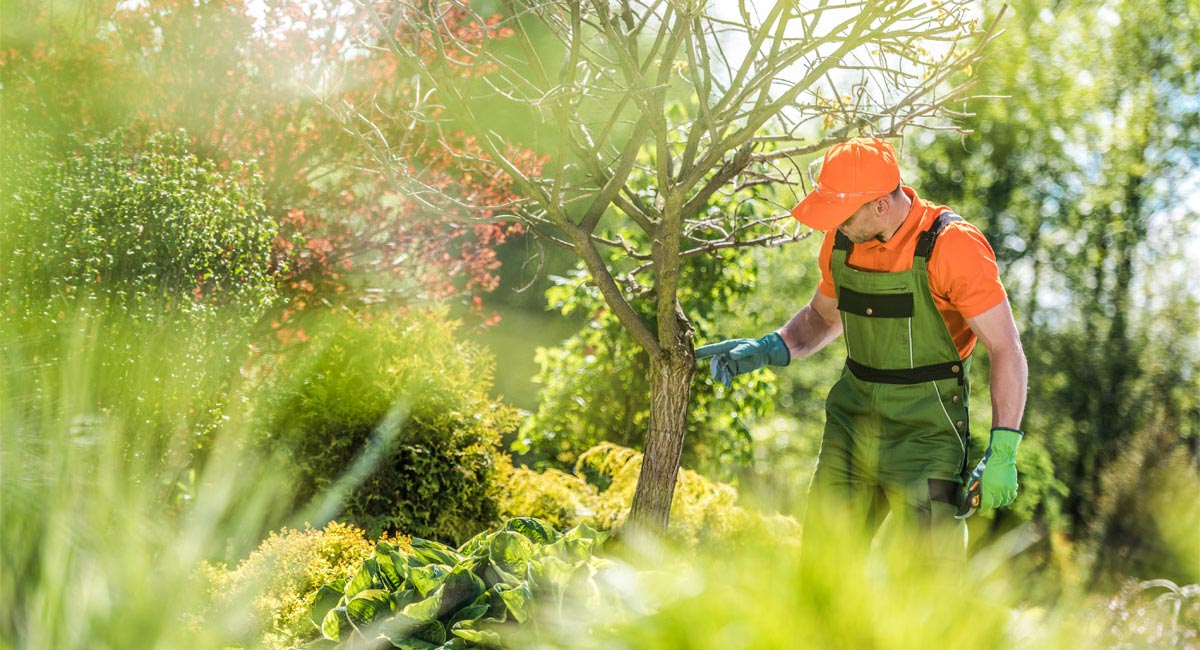When to Get a Tree Assessment
With the intention of successfully assessing a tree, it should be examined at least twice a year; once in the winter season and once in the summer season. Throughout the winter, arborists can identify weakening branch structure, corrosion from animals, and possible decay since they are not covered by summer leaves. Throughout the summer, arborists can examine the color of the leaves and the tree’s twig growth. Without having your trees adequately assessed could allow small issues to turn into serious problems that will impact the overall health of your trees.
Why You Should Get a Tree Assessment
An ordinary homeowner can’t locate possible issues with their trees like a certified and trained arborist. An arborist can locate problems with disease, pests, and overall damage that will cause the state of the tree to become worse, potentially leading to a fallen tree. A falling tree on your property is highly dangerous because it may result in major property damage in addition to serious injury or death. Here are the primary reasons to get your trees assessed twice a year:
- Safety: A falling tree, or just a branch, is a significant risk on your property. Yearly tree assessments will point out issues that may cause a tree or branch to fall, greatly reducing that risk.
- Tree Aesthetics: Recommended treatments for diseases and insect infestations, fertilization, and pruning based on a tree assessment will help to enhance the aspect of the tree.
- Tree Health: The aftermath of disease and harmful pests may be easily missed by an individual who isn’t trained to find them. Professional arborists can quickly point out the signs of a disease or infestation and without delay provide the correct treatment.
What is Included in a Tree Assessment?
When a certified arborist carries out a tree assessment, they’re in general looking for the following problems:
- Cracks: Cracks on the tree are typical problems that arborists look for. Major cracks can split the bark, heartwood, and softwood, weakening the structural strength of the tree and making it susceptible to insects, decay, and disease.
- Leaning: When the tree roots lose their connection to the soil; the tree could begin to lean. If the lean continually gets worse season after season, the tree will have to be removed.
- Issues with Root Plate: Degradation or softening of the root plate may lead to a separation with the lateral root system, causing instability of the tree. Typical causes of root plate problems include deep planting, root disease, and mower blast.
- Girdling Roots: Occasionally the tree roots can envelop the trunk and start fighting with the trunk over nutrients and water. The trunk and the roots will develop into each other and over time cause issues for the tree.
- Decay: Decay happens when an ailment leads to the inner heartwood tissues softening.
- Co-dominant Stems: When there are two likewise dominant terminal stems, one needs to be removed or they’ll challenge each other which will lead to one of them failing.
- Disease and Insects: Tree disease and aggressive insects leave signs that are hard for homeowners to see, but a certified arborist will see the signs immediately. Discovering these problems early on will help prevent detrimental damage to the tree.
- Growing Conditions: It’s vital for trees to have correct growing conditions for the prevention defects within the tree or it’s root system.
- Non-defects: Occasionally homeowners could be concerned by non-defects, like needles turning yellow, foliage loss, and separating bark. Depending on the type of tree, these occurrences may be natural and nothing to worry about.
Call a Professional Tree Service Provider
While it is suggested to have your trees assessed once during the summer and once during the winter, professional tree service companies are year-round to offer assessments. Be sure you contact a certified arborist if you think there might be something amiss with your trees. They will strongly assess the issues and come up with solutions to restore the health of the trees. Being precautionary with your trees assessment will not just maintain your trees, but will save you money by hindering property damage and tree removal costs.
Source:
- ArmstrongExpert, Luke. “When to Call an Arborist for a Tree Assessment.” RestorationMaster, 16 Mar. 2018, restorationmasterfinder.com/restoration/when-to-call-an-arborist-tree-assessment/.
Tree Assessment in Phoenix, Tempe, & More
If you think you trees are in need of care and need an assessment Arbor Care can help! We can assist you in getting down to you trees health and can provide helpful hints to keep you trees happy and healthy. Contact Arbor Care at 480-797-5566 today to schedule your tree assessment.





